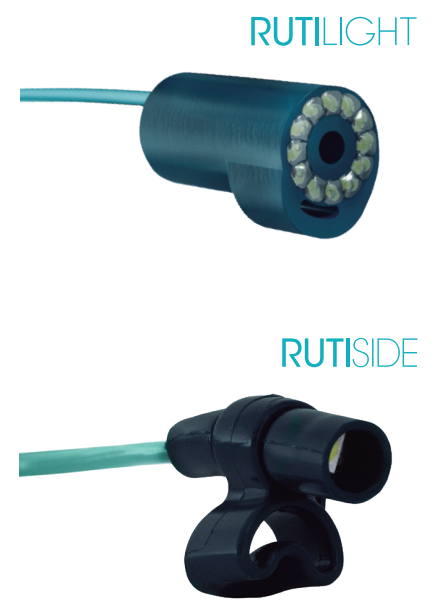
Illuminate your surgery up close and gain visibility and precision!
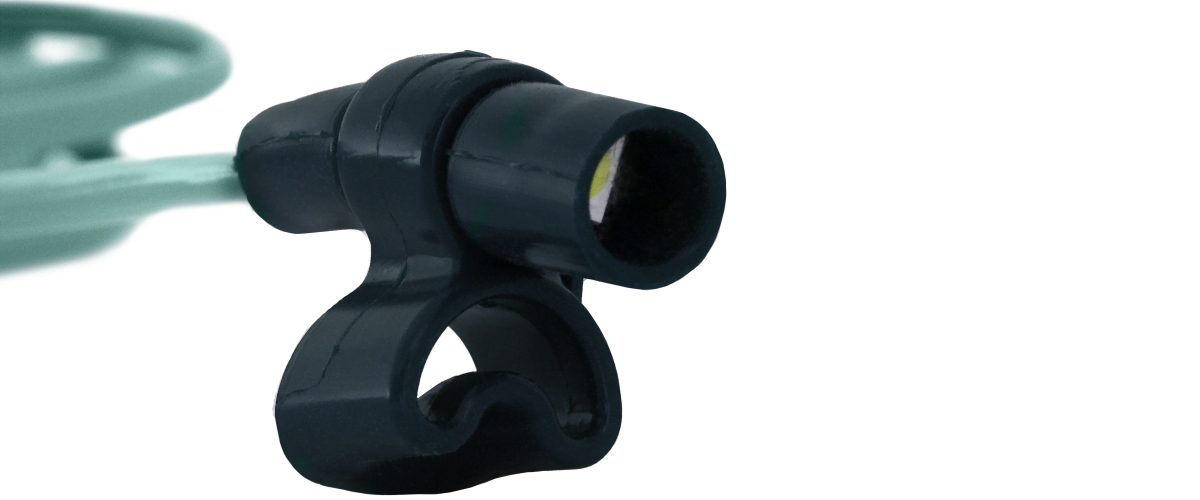
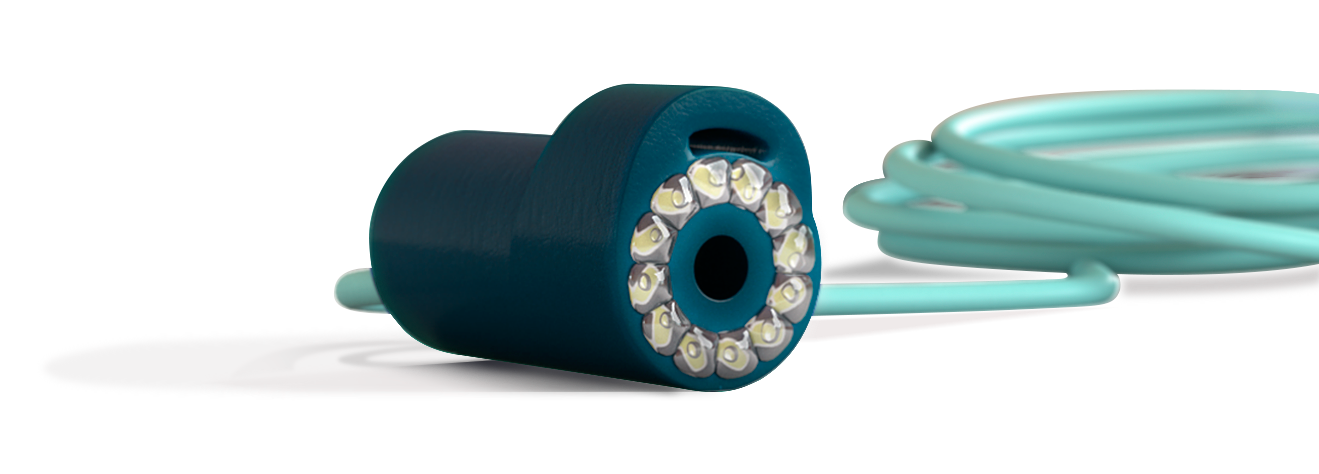
Surgeons all over the world often complain of the poor quality of the surgical lighting during some of their procedures.
In many surgical interventions, there are areas that remain dark or shadowy despite the use of overhead OR lighting or other additional lighting, such as headlights or lighted retractors. This lack of adequate lighting can negatively impact surgical procedures and their outcomes.
A highly effective lighting device
Rutilight/Rutiside is a sterile, single-use illumination device for open surgery that allows light to be brought to within a few centimetres of the surgical field, in a very simple and convenient way, accessing dark areas that no other alternatives can reach.
It is a local lighting system that can be mounted onto surgical instruments. It is easy to assemble, sterile and disposable, and allows close-up, precise illumination of the surgical field.
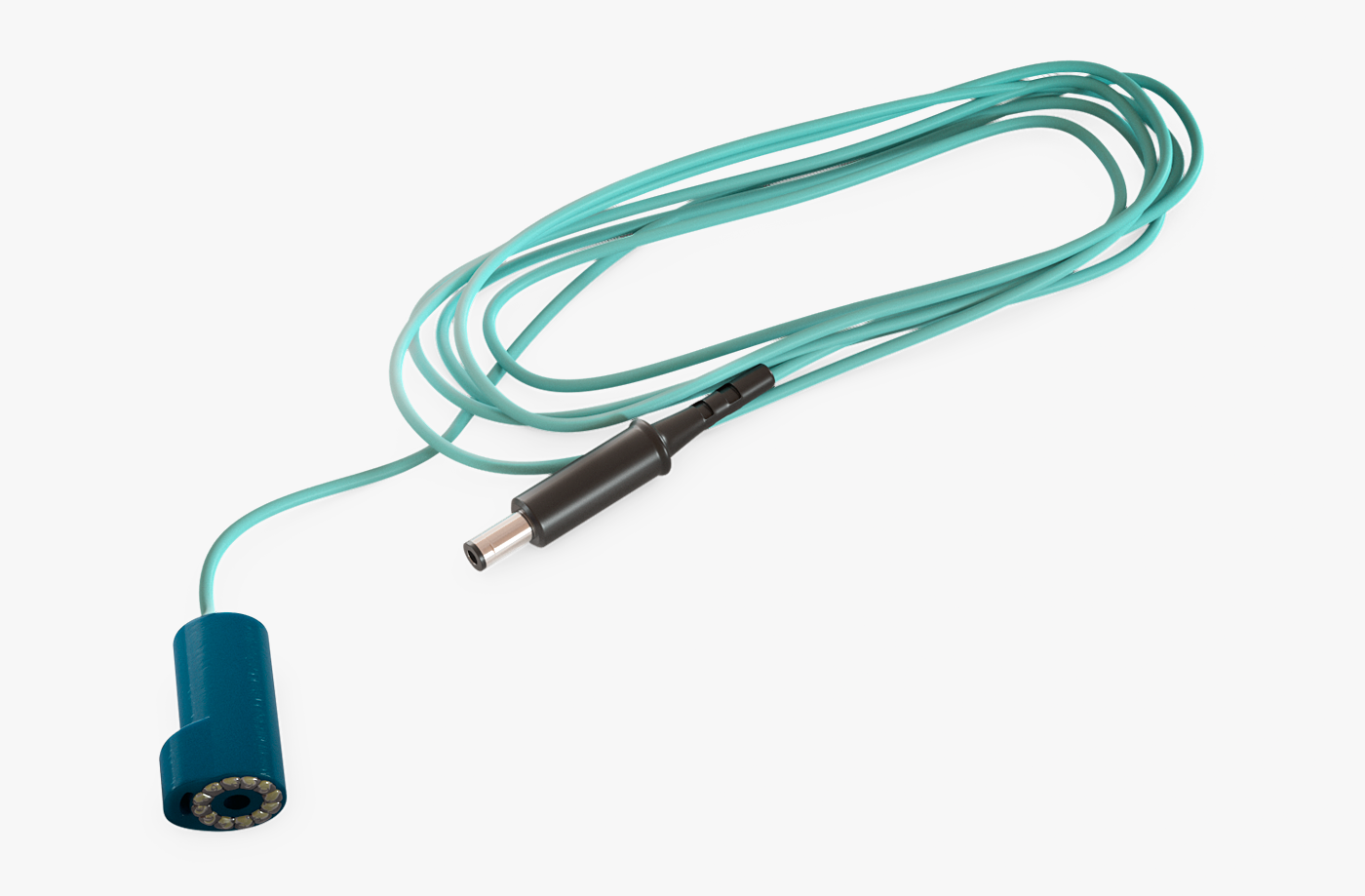
Reduce complications
Facilitates surgical work
Reduces operating time
Improve visibility
An ergonomic product designed by surgeons for surgeons
Dr Joan Francesc Julián and Dr Jordi Navinés, from the General Surgery Department at Germans Trias i Pujol Hospital, near Barcelona, devised this innovative product as a surgical device in response to the need for improved lighting for certain surgeries.
The device improves the visual quality of the surgeon during surgical interventions in any field of medicine, but especially in the case of surgeries with an approach that is narrow, deep and difficult-to-reach.
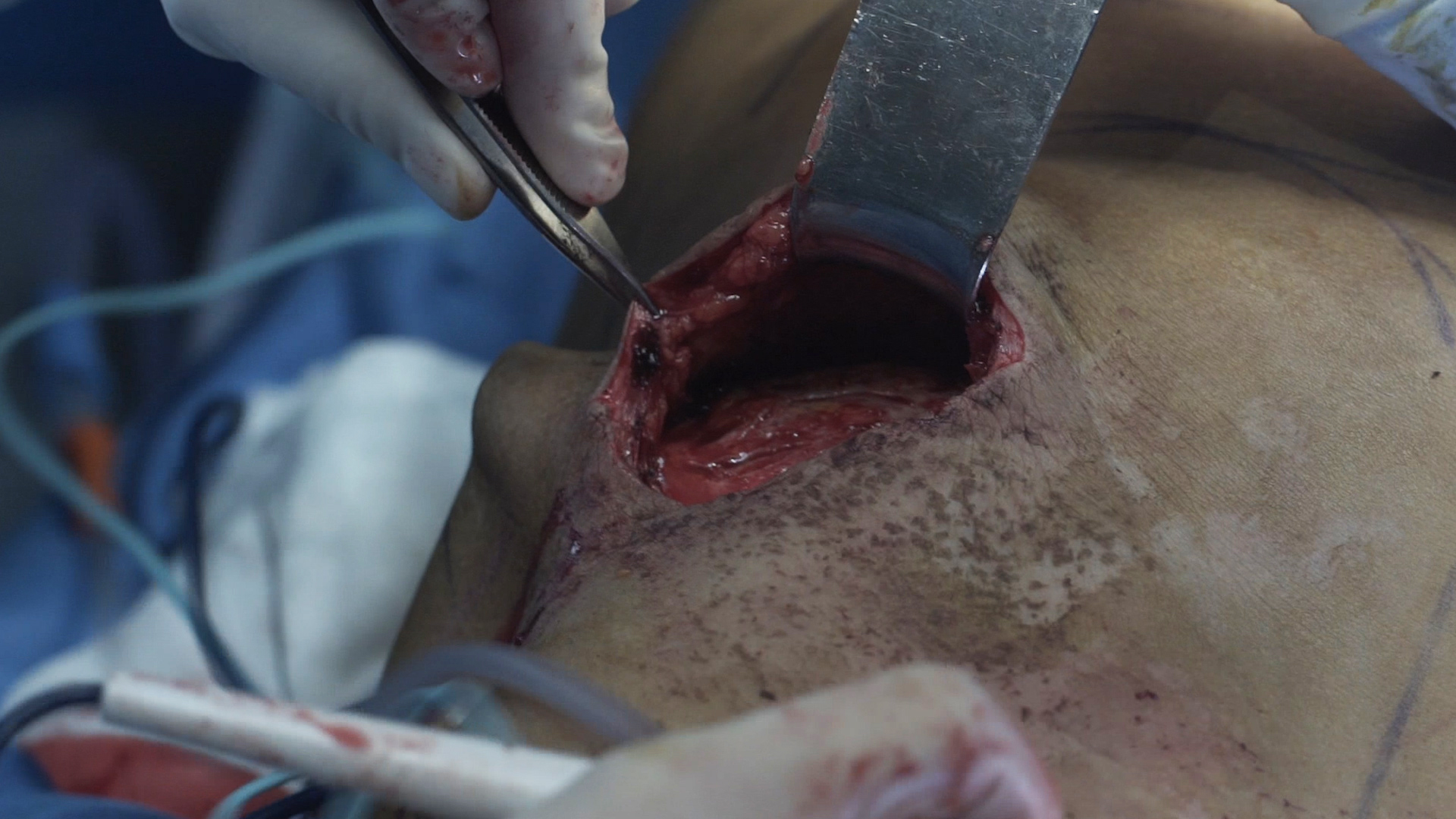
OFF
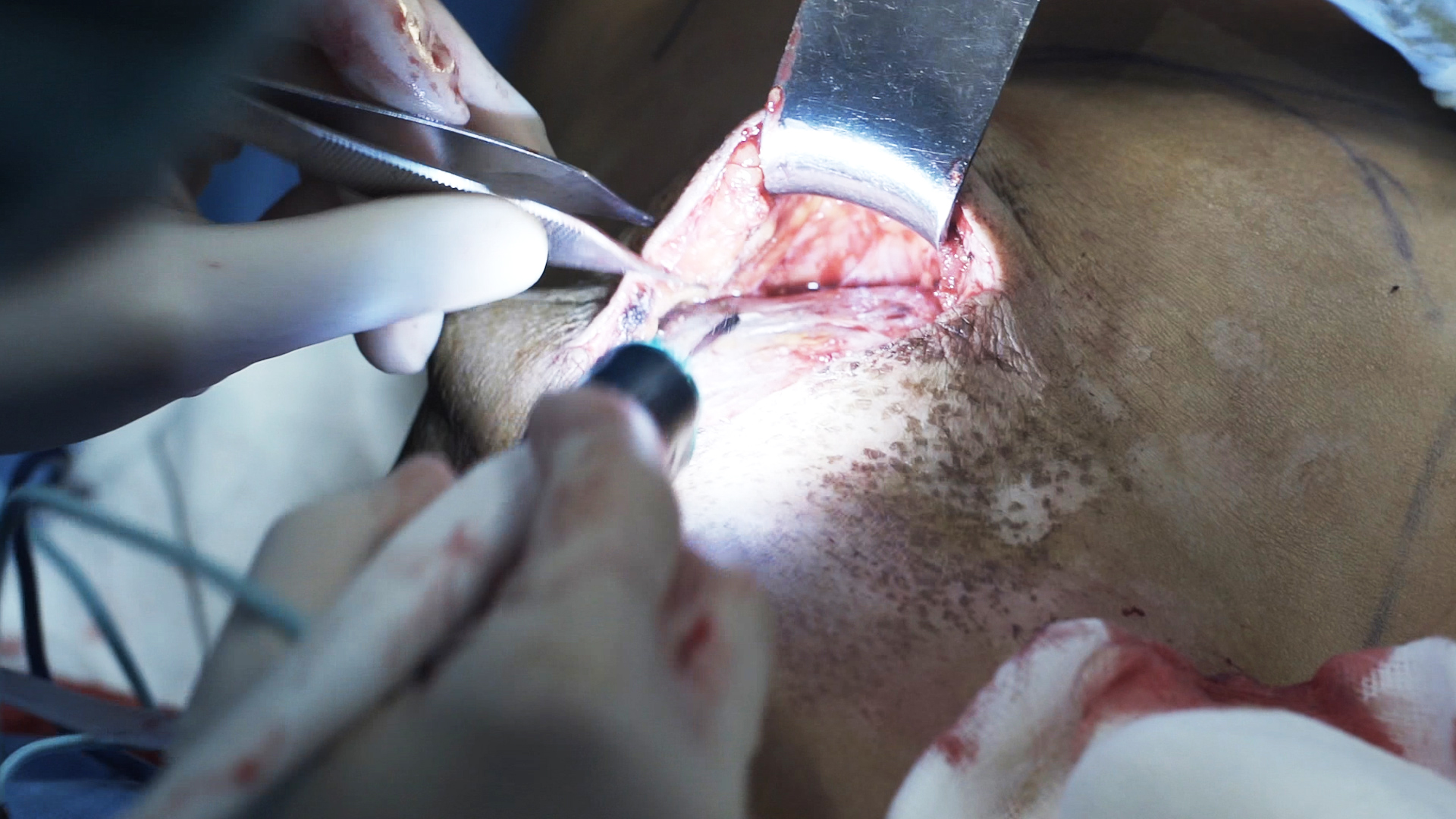
ON
Optimisation of lighting in open surgeries
The device allows the light beam to be concentrated on the surgical field in front of the surgical instruments to focus on the surgeon’s immediate field, to illuminate it intensely and very closely and to penetrate poorly illuminated cavities and corners.
The benefits in the surgical field
Improving lighting improves the surgeon’s surgical practice with a beneficial impact, not only in terms of comfort, reduced fatigue, improved posture and reduced need to reposition lights, but also for the patient, with better quality of care, improved precision of procedures and visualisation of vital structures, increased safety in poorly lit areas, faster surgical time and, in general, improved final results in different clinical situations.
Use on a wide variety of instruments
Rutilight/Rutiside can be attached to the most commonly used instruments in the operating theatre: from the electric scalpel, aspirator and forceps, to scissors, electric sealer, dissector, bipolar forceps or any other instrument whose diameter allows it.
This allows the same device to be used on several instruments consecutively in the same surgery, or several units to be used simultaneously on several instruments.
Its use does not require an extra hand!
For the vast majority of surgeries
The device is of great value in all those open surgeries in which during all or part of the intervention the surgical field is poorly illuminated and it is impossible for the zenithal lights of the operating room or the headlights to be sufficient to guarantee the precision required by any surgical process.
Coloproctology
Colon, rectal, anal and endoanal surgery.
Endocrinology
Thyroid, parathyroid and suprarenal surgery and ganglion drainage.
Breast surgery
Subcutaneous areola-sparing mastectomy and underarm surgery.
Oesophagogastric surgery
In the abdominal and cervical phases.
General and digestive surgery
Hepato-bilio-pancreatic and other surgeries.
Pediatric surgery
Solid tumours, severe malformations and stenosis.
Plastic and reconstructive surgery
Complex maxillofacial and other operations.
Morbid obesity
In all kind of open surgeries.
Transplants
Liver, kidney, pancreas and lung.
Peritoneal oncology
Peritoneal carcinomatosis.
Traumatology
Complex shoulder, hip, knee, foot and ankle injuries.
Urology
Pathologies affecting the urinary tract and reproductive system.
Gynecological
Hysterectomy, abdominal myomectomy and complex surgeries.
How do surgeons rate the Rutilight?(*)
Average ratings out of 10.
8,7
Overall satisfaction.
8,8
Improved visualisation of narrow fields.
8,6
Improvement of visual perception of delicate structures.
8,5
Avoiding the repositioning of operating theatre lights.
8,9
Improved visualisation of poorly illuminated fields.
8,6
Use experience.
> 8
Improving the conditions of the procedure and the safety of the procedure.
9,4
Recommendation of use to peers.
(*) Observational Study 2022 - Hospital Germans Trias i Pujol - Badalona (Barcelona)


